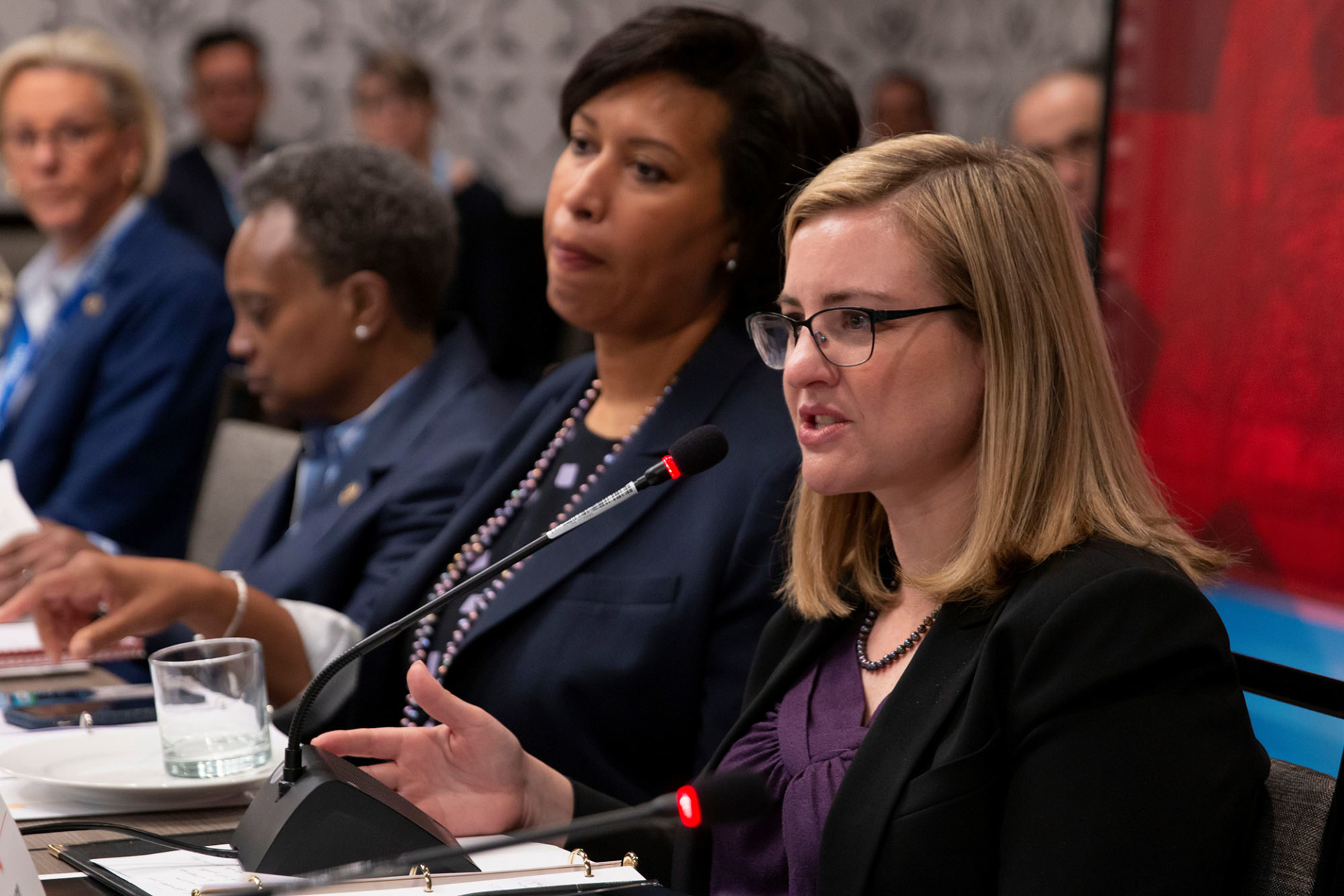Phoenix Mayor Kate Gallego told an audience of elected officials in Washington Thursday that while cities across the country are forced to be creative in the fight to provide affordable housing, it’s a particular challenge in her city.
With the nation’s fastest-growing city on the one hand, and restrictions from state lawmakers and private-sector organizations on the other, Gallego said it can be “a real challenge when we’re growing so quickly, how can we make sure everyone has a home.”
Gallego’s comments came during a U.S. Conference of Mayors panel on affordable housing during which mayors bounced between commiserating and sharing best practices for the challenge they all face.
“Economic recovery has been mixed at best,” said Eileen Fitzgerald, head of housing affordability and philanthropy for Wells Fargo and the only private-sector representative on the panel. “Even in cities that are seeing it, we know there are neighborhoods that aren’t seeing it.”
Fitzgerald said scattered economic growth across the country prompted Wells Fargo to commit $1 billion to support affordable housing over the next six years. But delivering on that promise will require creativity and collaboration between cities and private partners, she said.
“Push your community to be creative, and be as flexible in whatever funds you have … leading businesses and institutions to step up and contribute to the solution,” Fitzgerald told the mayors.
But Gallego said not all cities face the hurdles that Arizona cities do, citing a state law that prohibits municipalities from forcing developers to provide affordable housing.
“The Arizona Legislature was the first to pre-empt cities from requiring affordable housing,” Gallego said. “Our state said, ‘Nope, you can’t require it.’”
That pushed the city to look for other ways to create incentives for affordable housing – only to face pushback on that move.
“We looked at many of the things we had to offer,” Gallego said. “We own a significant amount of land so we offered it to affordable housing program managers, our nonprofit partners, at below market (value).”
That sparked a lawsuit in 2018 by the Goldwater Institute, a free-market public policy organization based in Arizona, which argued that Phoenix’s subsidizing of the properties was a “de facto gift” that violates the Arizona Constitution.
“They sued us and said you can’t subsidize,” she said. “So that is still in the court system but we are having to be very creative.”
Phoenix has been able to create programs to help house people in need, including Starfish Place, which provides housing for victims of human trafficking. Gallego said the city works with Arizona State University to ensure the program is helping victims.
During a question-and-answer session, Gallego said the city has worked to increase housing density along transit corridors.
“Like many cities transportation is a huge cost for our residents and if we can diminish that part of the burden on the budget we think they?re more likely to be able to thrive and continue to grow in Phoenix,” she said.
Other mayors agreed that one solution to building affordable housing was to change zoning ordinances in their cities, which Atlanta Mayor Keisha Bottoms said can help make a dent in housing affordability.
“We recognize that God isn’t producing any more land,” Bottoms said. “If we are going to provide more affordability, we have to become denser cities.”
Despite the challenges faced by cities and residents, Fitzgerald said housing is fundamental and worth fighting for.
“Home is a sanctuary, it’s a place that we should be able to go to thrive to recharge,” she said. “We know that a stable home is key to holding down a job, it’s key to a healthy life.”




